Coping With Non-Consensual Sexual Experiences: Insights from Gay, Bisexual, and other Men who have Sex with Men
In a new study from the University of Ottawa’s Department of Psychology, researchers Raymond McKie, M.Sc. (Ph.D. Candidate), Jeremy Oueis, B.A. (Hons) (Ph.D. Student), and Elke Reissing, Ph.D. took a closer look at the non-consensual sexual experiences of Gay, Bi, and other Men who have sex with Men (GBMSM). From their research, a series of infographics have been produced to highlight the most relevant data from their findings.
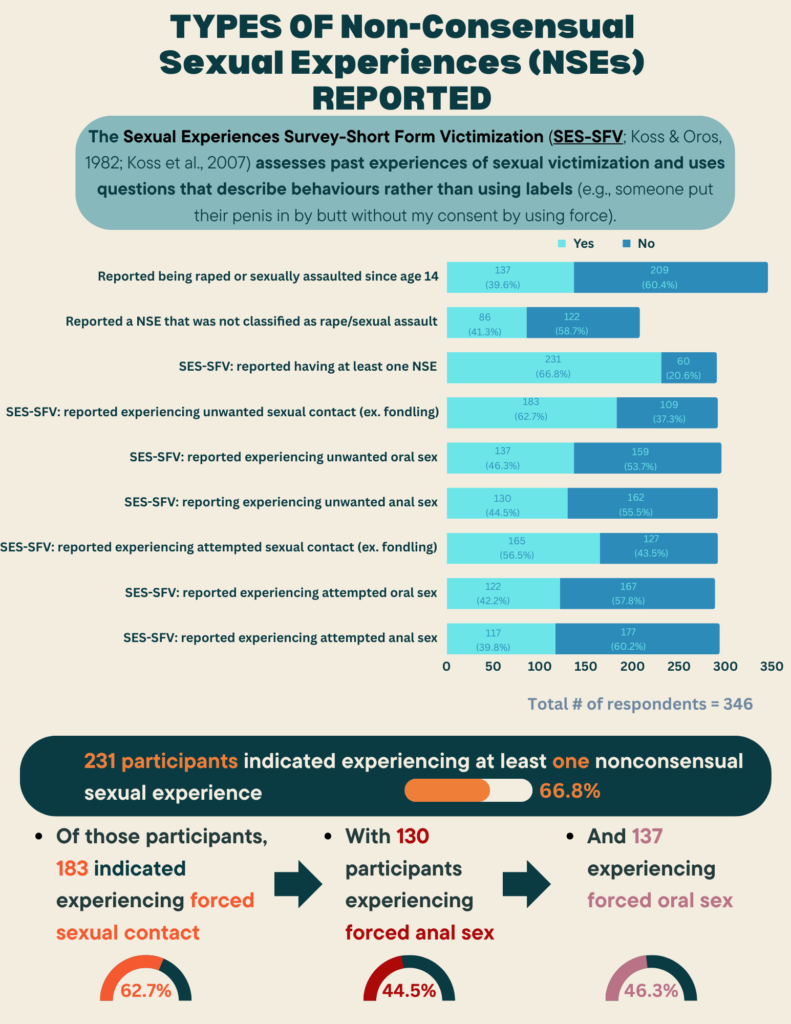
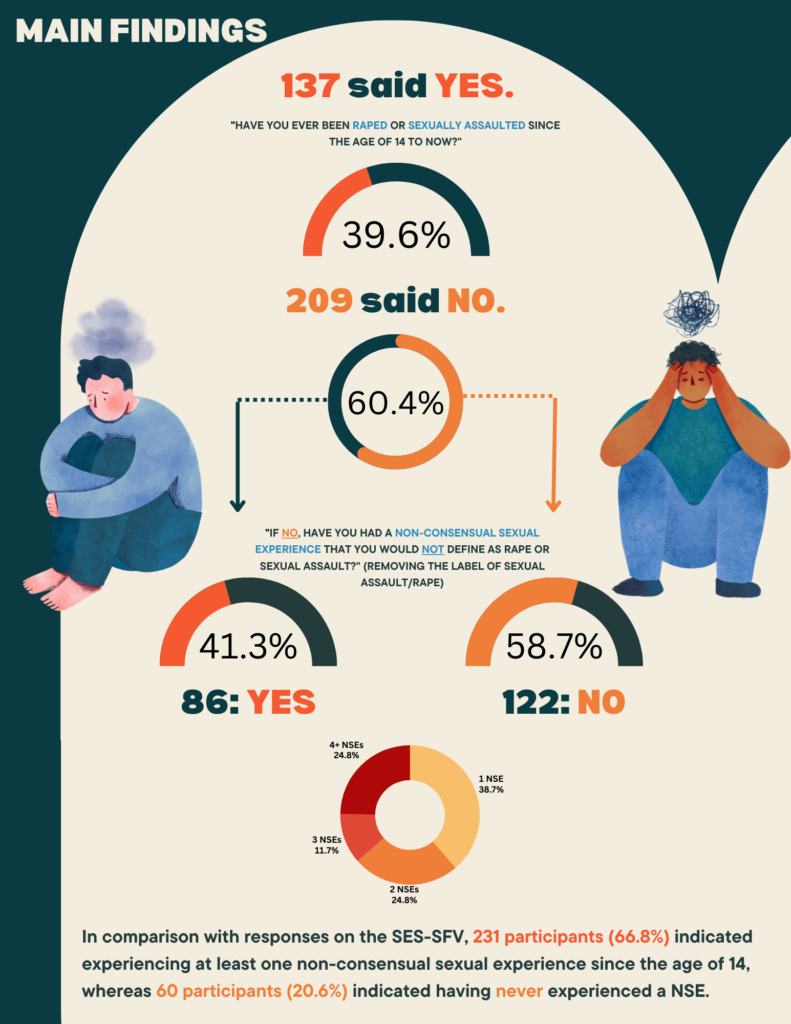
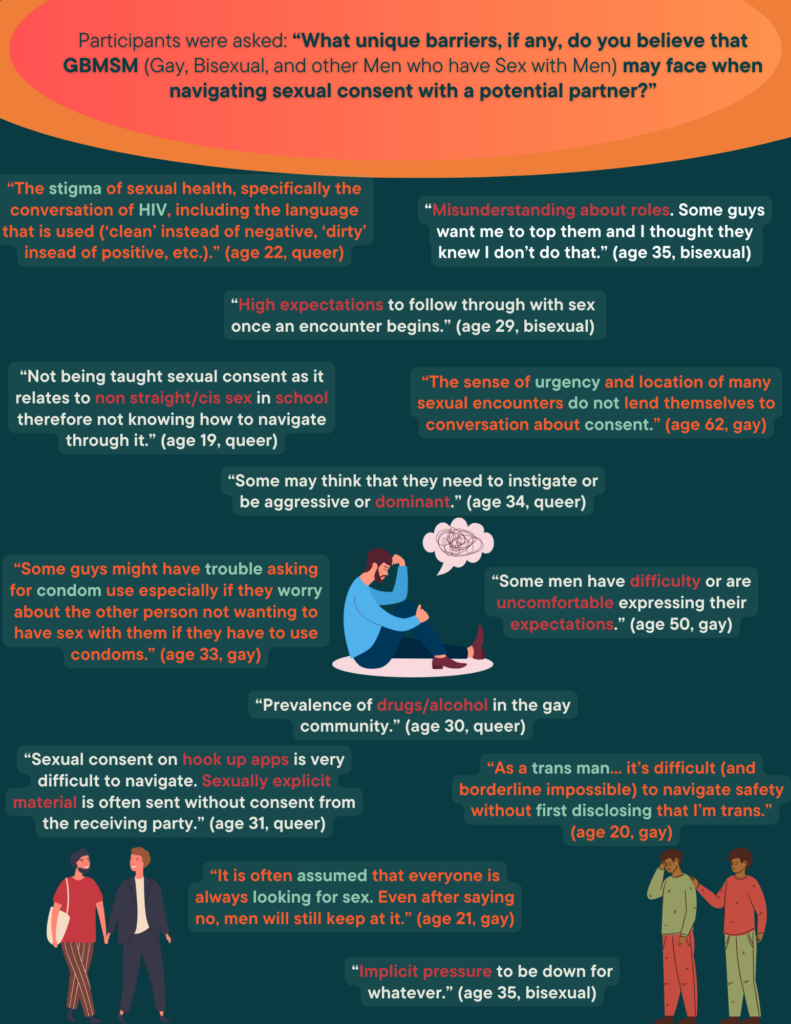
Participants were asked: “What unique barriers, if any, do you believe that GBMSM may face when navigating sexual consent with a potential partner?” They responded with some of the following quotes:
“Some men have difficulty or are uncomfortable expressing their expectations.” (age 50, gay)
“Some guys might have trouble asking for condom use especially if they worry about the other person not wanting to have sex with them if they have to use condoms.” (age 33, gay)
“Not being taught sexual consent as it relates to non straight/cis sex in school therefore not knowing how to navigate through it.” (age 19, queer)
“Sexual consent on hook up apps is very difficult to navigate. Sexually explicit material is often sent without consent from the receiving party.” (age 31, queer)
“As a trans man… it’s difficult (and borderline impossible) to navigate safety without first disclosing that I’m trans.” (age 20, gay)
The researchers provided recommendations moving forward, as well as some key take-aways from the study.
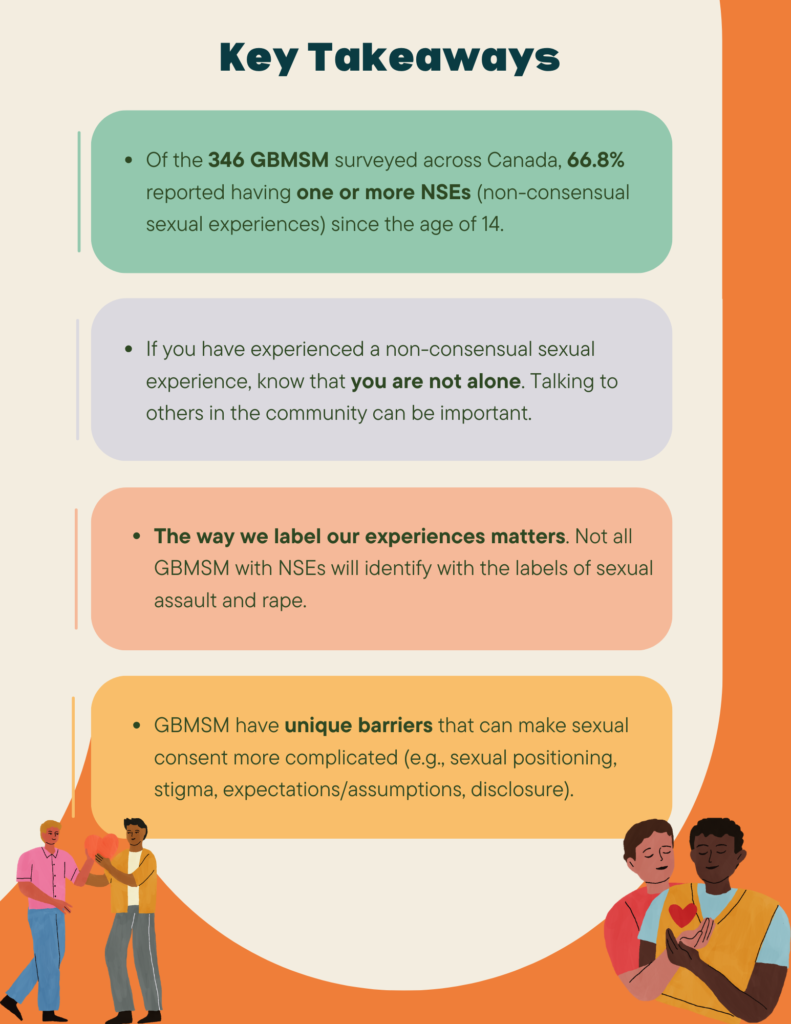
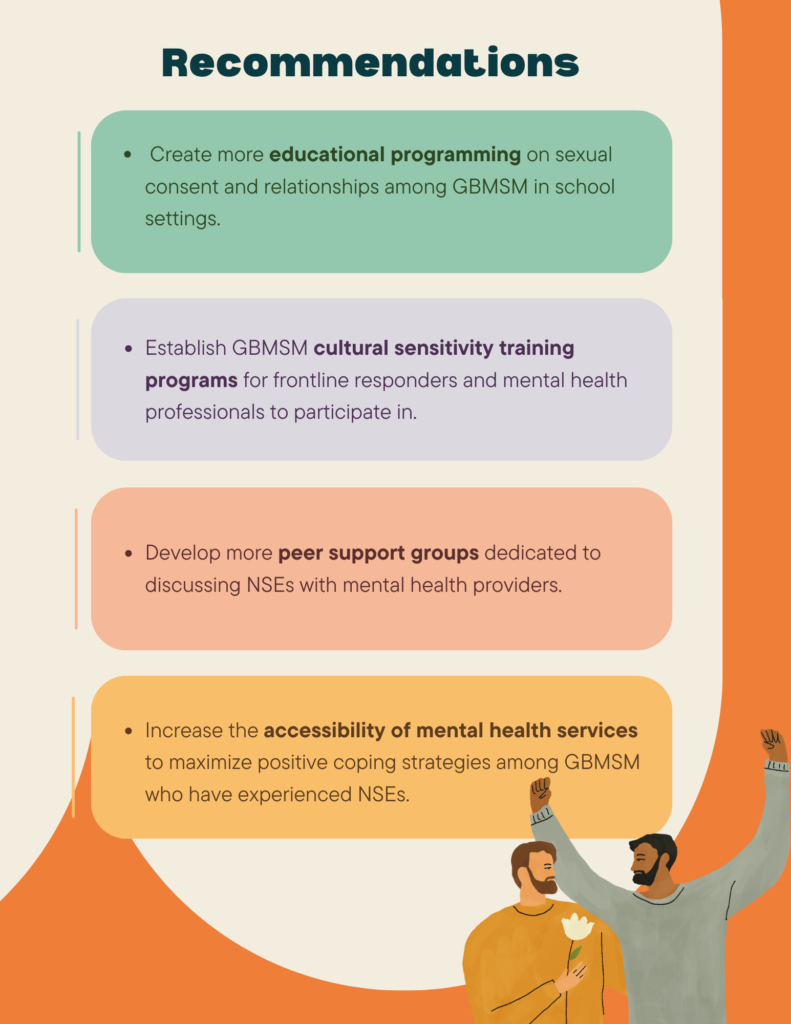
With 66.8% of the surveyed group reporting on or more non-consensual sexual experience, there’s one thing for certain – this is an issue that many in our communities are facing. If you have experienced a non-consensual sexual experience, know that you are not alone. Talking to others in the community can be important. The way we label our experiences matters. Not all GBMSM identity with the labels of sexual assault and rape. Lastly, GBMSM have unique barriers that can make sexual consent more complicated.
Going forward, we must create more educational programming on sexual consent and relationships among GBMSM in school settings, establish GBMSM cultural sensitivity training programs for frontline responders and mental health professionals, develop more peer support groups dedicated to NSE’s, and increase accessibility of mental health services.
To find out more on the study’s results and methodology, you can find the full report here.
